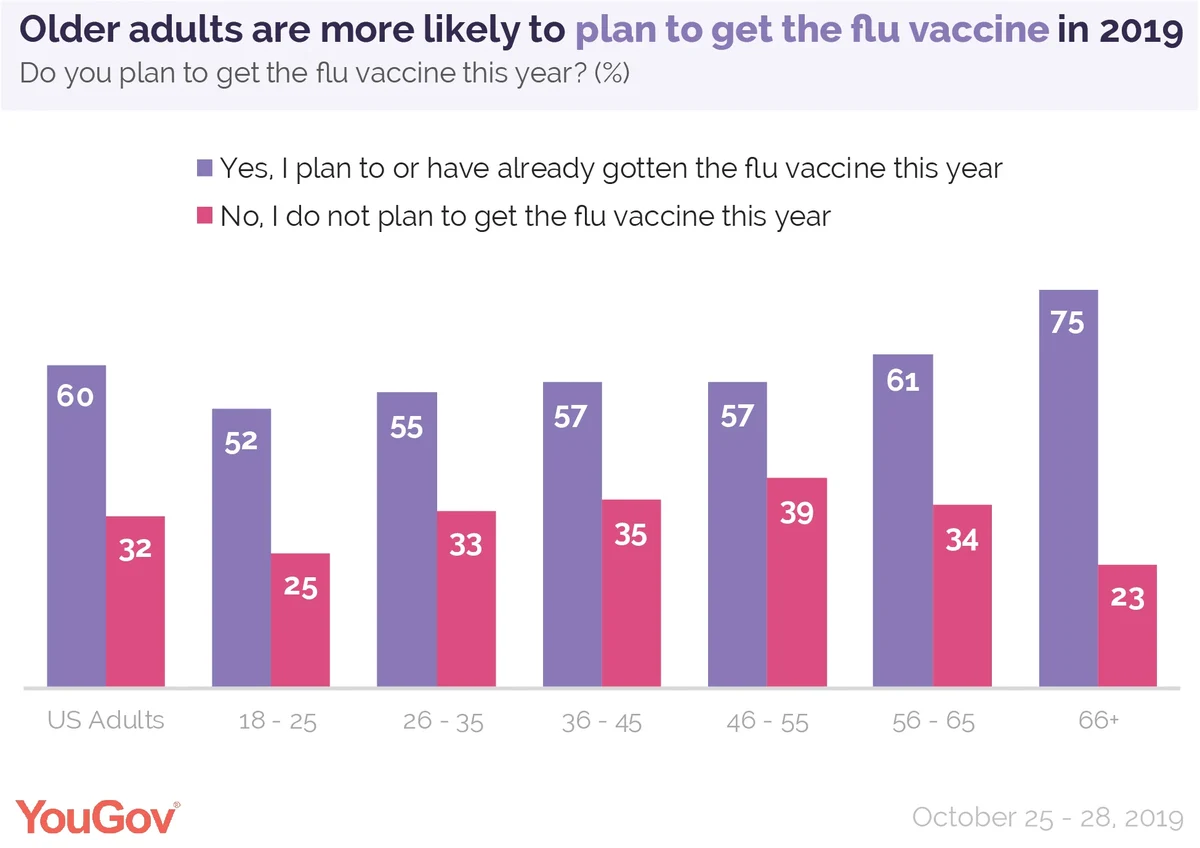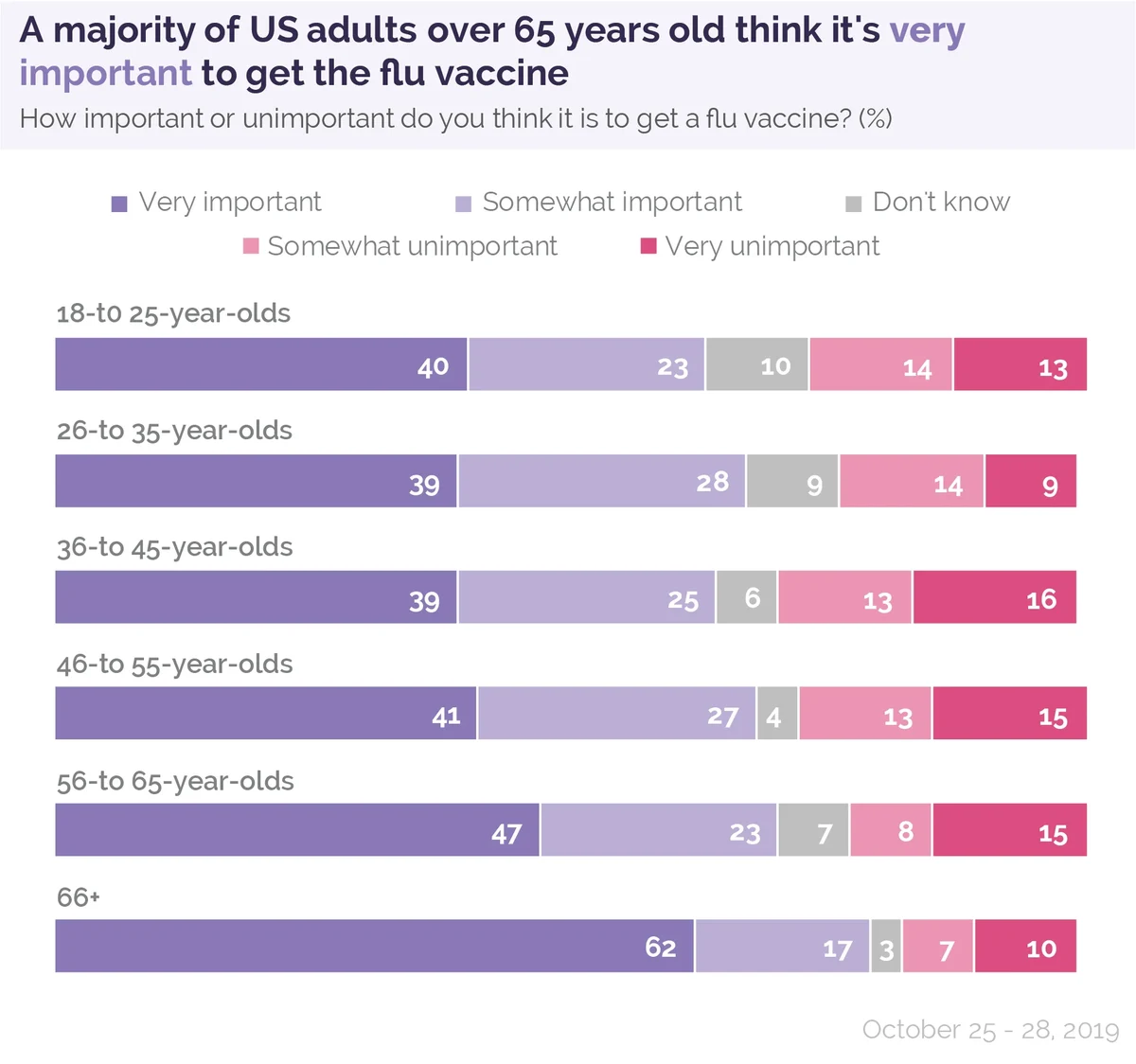About a third of American parents (32%) who have children under 18 years old believe that the flu vaccine can itself cause the illness. But that’s not true, according to the Centers for Disease Control.
The CDC has been on a mission to debunk several misconceptions about the flu vaccine—such as the belief that it can cause someone to contract the illness or the belief that it can be more beneficial for someone to get the flu than the vaccine. YouGov data indicates that parents with children under 18 are more likely to believe some of the misconceptions the CDC is fighting.
Approximately three in 10 (31%) parents with children under 18 responded in the affirmative to the statement, “It's healthier to gain immunity from catching the flu virus, rather than from the vaccine.” In contrast, about two in 10 US adults (23%) and non-parents (21%) said the same. The CDC says it is not better to get the flu instead of the flu vaccine because any flu infection can carry a risk of serious complications, particularly for young children and older adults.
And 32 percent of parents who have children under 18 years old believe “the flu vaccine can cause flu.” By contrast, a quarter (25%) of non-parents said the same, though the general population was more apt to believe (29%) that the flu vaccine makes it more likely to contract the illness.
About a quarter of US adults (23%) believe that pregnant women should not get the flu vaccine, though studies indicate that it helps to protect pregnant women and their children from the flu for several months after birth. About three in 10 (29%) parents with children under 18 say pregnant women should not get the flu vaccine, compared to 19 percent of non-parents.
Despite the lingering misconceptions, a majority of Americans plan to get the flu vaccine in 2019. Young adults are less likely than older Americans to get a flu shot.
Americans over 65 are the most likely age group to have gotten the vaccine or say they intend to, according to the YouGov survey conducted at the end of October. Nearly three quarters (74%) say they will. Older Americans are also the most likely to say it’s “very important” to be immunized against the flu (62%) and understand popular misconceptions about the flu vaccine.

Americans over 65 years old were significantly more likely to answer correctly when asked about flu vaccines. These older adults born before 1954, would have grown up before the discovery of the measles vaccine in 1963, during which time there were large public information campaigns around vaccines. Older Americans are also more likely to face complications from the flu, and a 2018 report from the AARP found that flu-related deaths have spiked in recent years among those 65 and older.
Perhaps unsurprisingly, a majority (62%) of those older than 65 years old say it is “very important” to get the flu vaccine. Four in 10 (40%) younger Americans between 18 and 25 years old say it is “very important.” Across all age ranges, the flu vaccine is seen as more important than unimportant to get.

See the flu vaccine survey results here. To see the full age break analysis, please email uspress@yougov.com
Related: Ebola is seen as the most severe threat to global health
Methodology: Total unweighted sample size was 1,309 US adults, which included 165 adults between 18 - 25 years old, 263 adults between 26 - 35 years old, 222 adults between 36 - 45 years old, 194 adults between 46 - 55 years old, 266 adults between 56 - 65 years old, and 199 adults older than 65. The figures have been weighted and are representative of all US adults (ages 18+). Interviews were conducted online between October 25 - 28, 2019.
Image: Getty








